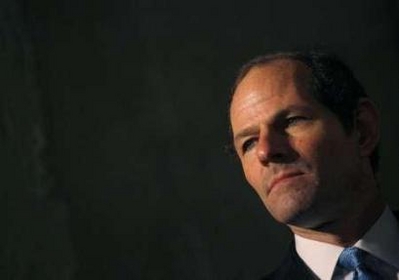As the state of New York continues to carry the legal torch lit seven years ago by disgraced former Attorney General Eliot Spitzer against American International Group (AIG) and its former CEO Maurice “Hank” Greenberg, two new and startling revelations have emerged surrounding the man the New York Attorney General’s office has put at the tip of its prosecutorial spear, David Ellenhorn.
First, records indicate that Mr. Ellenhorn was in March 2006 a member of a fund that controlled 8,400,000 shares of AIG–thereby representing a possible conflict of interest.
Second, Mr. Ellenhorn hails from a firm whose refusal to turn over key documents in a previous case resulted in a record $10 million fine by the Securities and Exchange Commission (SEC).
Assistant New York Attorney General David Ellenhorn was an appointee of Gov. Andrew Cuomo and a former partner in the now-defunct law firm of Solomon, Zauderer, Ellenhorn, Frischer & Sharp. Notably, Mr. Ellenhorn also previously represented the lawyers for ex-billionaire fugitive Marc Rich, whom President Bill Clinton notoriously pardoned.
Mr. Ellenhorn’s firm counted among its clients Bank of America and its broker-dealer subsidiary, Banc of America Securities. In 2004, things turned sour when the SEC slapped BAS with a record $10 million fine. The reason: “its lawyers simply did not turn over documents for months at a time, said some were ‘missing,’ when they weren’t, and ‘engaged in dilatory tactics that that delayed the investigation.'”
As the Boston Globe reported in 2004, the actions of Mr. Ellenhorn’s firm were so egregious that:
“Legal specialists said they would be surprised if the agency did not go after the lawyers involved, who worked at the now-defunct firm of Solomon, Zauderer, Ellenhorn, Frischer, & Sharp.”
That didn’t happen.
However, as SEC enforcement chief at the time Stephen Cutler said, “This is in many ways a textbook example of how not to deal with the government in an investigation.”
One possible defense of Mr. Ellenhorn might be that he was not responsible for the unethical behavior by members of his firm because he was not the partner in charge of the account. However, sources close to the story say that, ironically, that line of argument might be undermined by Mr. Ellenhorn’s own words. In 2001 oral argument before the New York State Court of Appeals, Mr. Ellenhorn posited that violations of the ethical Canons by one lawyer are equally attributable to that lawyer’s partners.
Fast-forward to the present. As the Wall Street Journal wrote back in January 2010, a consensus has emerged that the case against Mr. Greenberg is unfounded and that it’s time for prosecutors to move on: “Mr. Greenberg has already got his reputation back. Mr. Spitzer was forced to leave office under shameful circumstances, and his supposedly open-and-shut case against Mr. Greenberg vanished.”
Still, Mr. Ellenhorn remained determined to keep alive the case against Mr. Greenberg.
As the New York Times reported in April 2010:
“Mr. Ellenhorn argued that under New York State’s powerful Martin Act, senior executives can still be held legally liable for fraud even if they did not set out to commit fraud knowingly.
“It’s hard to envision a case in which the chief executive officer of a large company is more directly involved in fraudulent transactions,” Mr. Ellenhorn said.
A past colleague of Mr. Ellenhorn’s says their former associate’s zeal for the present case may be clouding his sensitivity to possible conflicts of interest as well as his prosecutorial judgment.
“David is a talented lawyer,” says a lawyer who practiced with Mr. Ellenhorn at his past firm. “But he has some obsessive tendencies– like a dog with a bone. He had a tendency to lose focus of the big picture. You can’t put prosecutorial discretion in the hands of someone like David.”

COMMENTS
Please let us know if you're having issues with commenting.